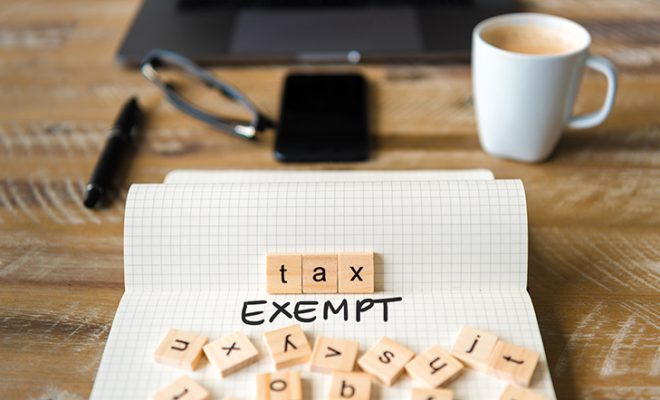Clearing air around the term “Tax Exempt”

Having to pay huge sums of tax on your hard-earned assets can pinch a little. This is why most people are always on the lookout for ways to evade tax or invest in assets that reduce their tax load. The term ‘tax-exempt’ means to be eligible to not pay income tax to the government. Certain securities, organizations, and even people can qualify to be tax-exempt. But there are often misinterpretations surrounding the topic. Let us cover some common tax-exempt subjects to clear the air around the term.
Table of Contents
Individuals exempt from Tax
While it would be a dream come true for most individuals to be tax-exempt, only the following people qualify not to pay income tax:
- Unmarried citizens under the age of 65 with an income of $12,000 or less per annum.
- Unmarried citizens over the age of 65, with an income of 13,600 or less per annum.
- Married citizens under the age of 65 with an income of $24,000 or less per annum.
- Married citizens over the age of 65 with an income of $25,300 or less per annum.
Apart from this, the following people are also tax-exempt:
- Widowed spouses over the age of 65 who have a dependent child whose yearly income is less than $25,300.
- Self-employed citizens who earn less than $400.
- A person under the age of 24 who is a full-time student.
- A person under the age of 19.
- People with permanent disabilities.
- War veterans with disabilities.
Organizations exempt from Tax
Non-profit organizations are also exempt from paying tax to the government. Charitable organizations registered as 501(c)(6), recreational clubs registered as 501(c)(7), and a children’s daycare organization registered as 501(k) are all examples of tax-exempt organizations.
It is mandatory for a non-profit organization to apply for the 501(c)(3) status to be exempt from paying tax. The Internal Revenue Services (IRS) decides which organizations qualify for being tax-exempt. Even then, not all activities of a non-profit are tax-free. Sometimes non-profit organizations run partner-businesses to fund their operations. In such cases, activities related to the business are not tax-exempt. Individuals can also seek tax-exemption only if they are donating to a charitable organization.
If you wish to apply for a 501(c)(3) status for your organization, you must pass three tests:
1. Organizational test: The organization must fall into one of the following categories:
- Education
- Charity
- Literary
- Religious
- Scientific
- Testing for public safety
- Preventing Animal cruelty
- Preventing cruelty against children
- Fostering amateur sports competition
2. Political Test: Organizations cannot participate in any political campaigns or spend money on political activities.
3. Asset Test: The organization can only provide compensation to its employees in return for their work. They cannot give other assets or income to individuals or be used as a means to benefit the owners, founders, or employees.
Tax-exempt securities
Some municipal bonds are also tax-exempt. Income generated in the form of dividends or interest from some of these bonds is exempt from federal, state, and local taxes. Some bonds like the U.S Savings Bond are eligible for federal tax, but exempt from state and local tax. Always remember that state tax policies may differ from one state to another. So, discuss these policies with a financial advisor before you invest your money.
Tax-exempt interest
The interest income from some investments can be exempt from tax. But keep in mind that it is only the interest earned that is tax-free. Capital gains still qualify for tax. Apart from municipal bonds, interest on a government obligation can also be tax free.
To sum it up
It is important for investors to understand their tax obligations and not be swayed by false or incomplete information. Before you invest your money, make sure you understand the intricacies of tax and clearly determine whether or not you qualify for an exemption. Remember that failing to pay taxes is considered tax fraud.
Be on top of your investing game. Reach out to financial advisors to understand how you can save tax.


















